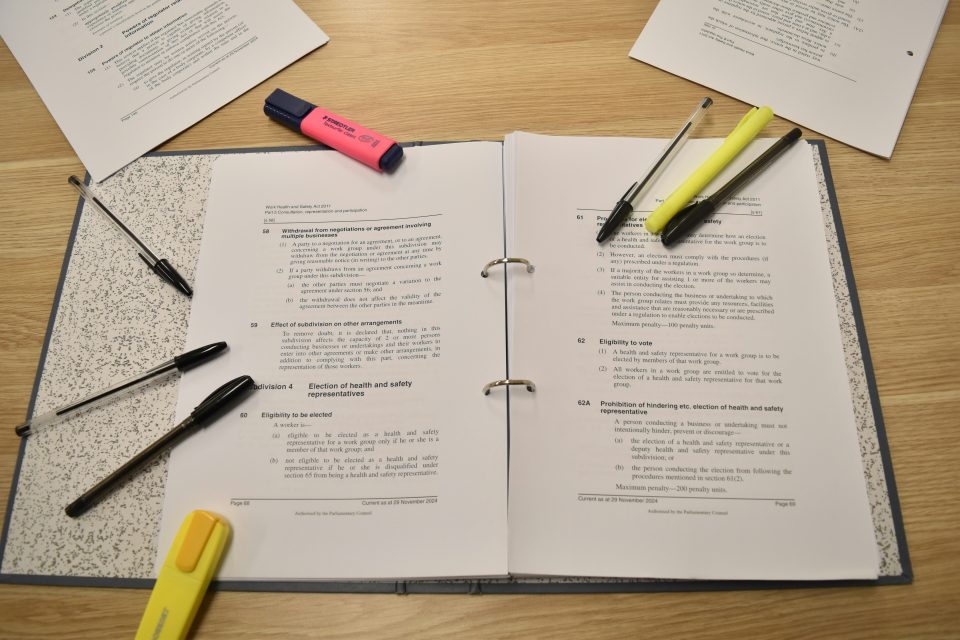
Can AI do copywriting? (And would you want it to?)
November 22, 2024
That’s a wrap on 2024
December 17, 2024There’s an art and a strategy behind crafting words that connect, inform, and even entertain. Whether you’re looking to engage customers, boost your brand, or simply avoid grammar gremlins, understanding the basics of writing can make all the difference. This A-Z guide breaks down essential writing terms with a funny twist.
While a quick guide can help, great writing often needs a professional touch. It’s not enough to have passed your English GCSE, being a great writer takes practice, diligence, and a deep understanding of your readers’ needs. Why struggle when expert copywriters are ready to bring your ideas to life? If you need that kind of help, you know where we are.
Apostrophe – The tiny punctuation that says, “I’m either owning something or contracting a word. Don’t get it wrong!”
Bullet points – For when your ideas need to stop messing around and line up nicely.
Brackets – The sneaky whisperers of writing —(great for side notes or juicy gossip in parentheses).
Brevity – It’s the art of saying less but meaning more.
Because – The bridge of logic, the “why” for every “what”; use it to explain yourself.
Comma – The humble pause that saves lives. (“Let’s eat, Grandma!” vs. “Let’s eat Grandma!”)
Colon – The grand drumroll, preparing readers for something epic: a list, explanation, or punchline.
Content – Everything you put out there hoping it’s informative, entertaining, or mildly useful.
Dictionary – The heavyweight champ of words, always ready to clarify, settle arguments, or inspire new vocab. Updated every year, so watch out for this year’s new additions
Drafts – The scrappy, messy practice rounds before the masterpiece; embrace them.
Ending – The curtain call of your writing, leaving readers clapping or scratching their heads.
Editing – The ruthless cleanup of your brilliant mess, where good writing becomes great. “Kill your darlings” is common advice (thought to have been given by William Faulkner). It reflects the editing process, which can mean getting rid of words you love for the benefit of your reader.
Freelancers – Experts who you can bring in on a project basis. They may be free-spirited, but don’t mistake them for being “free.”
Grammar – The rules of the writing road; sometimes annoying but keeps us from driving into a ditch. Expert writers will know which rules to stick to and which can be bent and broken.
Headline – The flashy outfit your article wears to make sure people notice it.
Italics – Lean in, reader; italics mean it’s about to get extra interesting.
Juxtaposition – Placing two opposing things side by side and hoping people notice the “oh wow” contrast.
Jargon – Industry code words that can make you sound like a pro to those in the know, but completely confuse everyone else. Use with caution.
Key messages – The takeaways are so clear they could be written on a sticky note and slapped on a monitor.
Links – The internet’s friendly nudge that says, “Wanna know more? Click me!”
Metaphors – Like similes, but cooler; when you compare two things to paint a picture that sticks.
Notebook (for ideas) – Your brain’s backup drive, because inspiration doesn’t always wait for your computer.
Oxford English dictionary – The dictionary with serious clout; if it says it’s a word, it is.
Opening (as in, intro) – The door that invites your reader in!
Proofread – The eye-squinting, detail-checking process of making sure you don’t “public” instead of “publish.”
Plan – Your story’s blueprint; because “winging it” rarely works as well as you think it will.
Punctuation – Tiny symbols with big power. Be certain you know how to use them or stay away (we’re looking at you, semi colons).
Quotations – When you want to borrow someone’s words and give them all the credit (and sometimes, the blame).
Questions – Writing’s nudge to make readers think, wonder, and stick around for the answer.
Read – The secret ingredient to better writing; if you don’t read, don’t expect to write well.
Speech marks – The VIP ropes for dialogue and quoted words; they mean, “This isn’t me speaking, folks.”
Structure – The skeleton that holds your writing together, so it doesn’t collapse into a pile of random sentences.
Stories – The heart of every piece and how human brains like to receive information; data is infinitely better when you wrap it in a good story.
Subtitle – The supportive sibling of the title, giving extra info or a touch of intrigue.
Title (see also, headline) – Your writing’s first impression, so make it snazzy, make it bold, or risk being ignored.
Thesaurus – The cheat sheet for when you can’t think of another word for “amazing.”
Testimonials – Reviews that (hopefully) show how wonderful you are. Or keep you humble.
Understand (your reader) – Know their hopes, fears, and favourite shows. The closer you get, the better your writing connects.
Urgency – That feeling that if they don’t read this now, they’ll seriously regret it.
Vanity – Thinking your writing doesn’t need any edits—trust me, it does.
Voice – Write like yourself, not like a robot.
Why? – The eternal question; every piece of writing should answer it.
X-factor – That special something that makes your writing stand out.
XXX – Placeholders for things you’ll need to verify; don’t forget them, or your draft will look like a pirate script.
You – Because “you” makes it personal, friendly, and much harder to ignore.
Zeitgeist – The spirit of the times; write about it, and you’ll seem as current as today’s headlines.
Zing – write well – The spark in your writing that makes it snap, crackle, and pop—get that zing, and you’re golden.
Writing well is more than just knowing your commas from your colons – it’s about creating clear, persuasive, and engaging content that resonates with your audience. If you’re looking to take your words to the next level, Wordsmiths Unlimited can turn your ideas into powerful messages.
Don’t let your writing fall flat or get lost in a sea of competing content; contact our copywriting team today to give your brand the voice it deserves.



